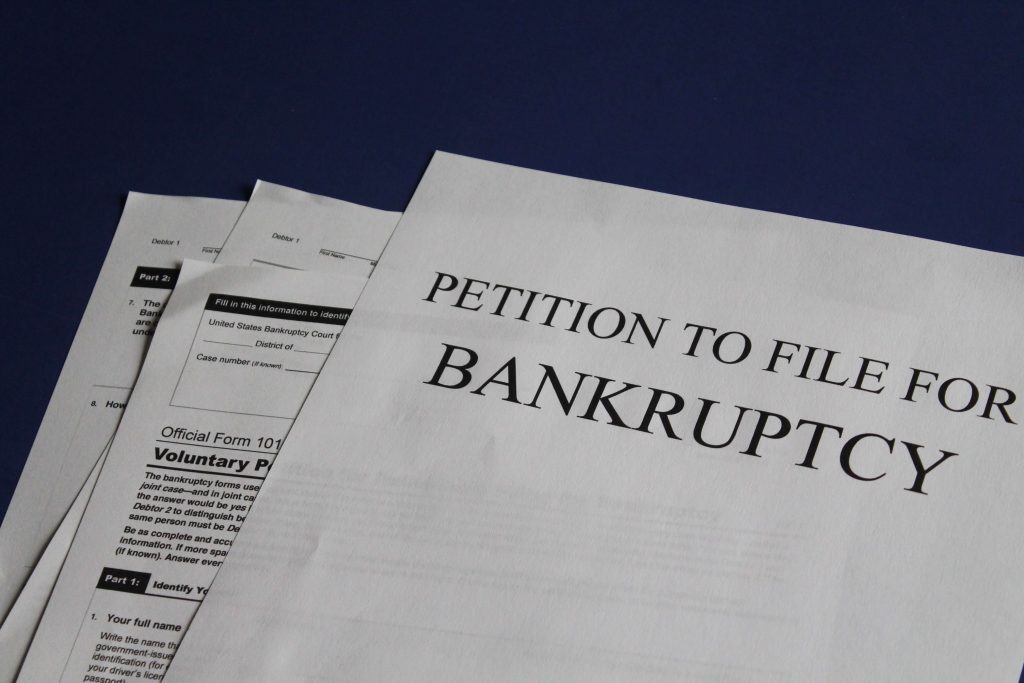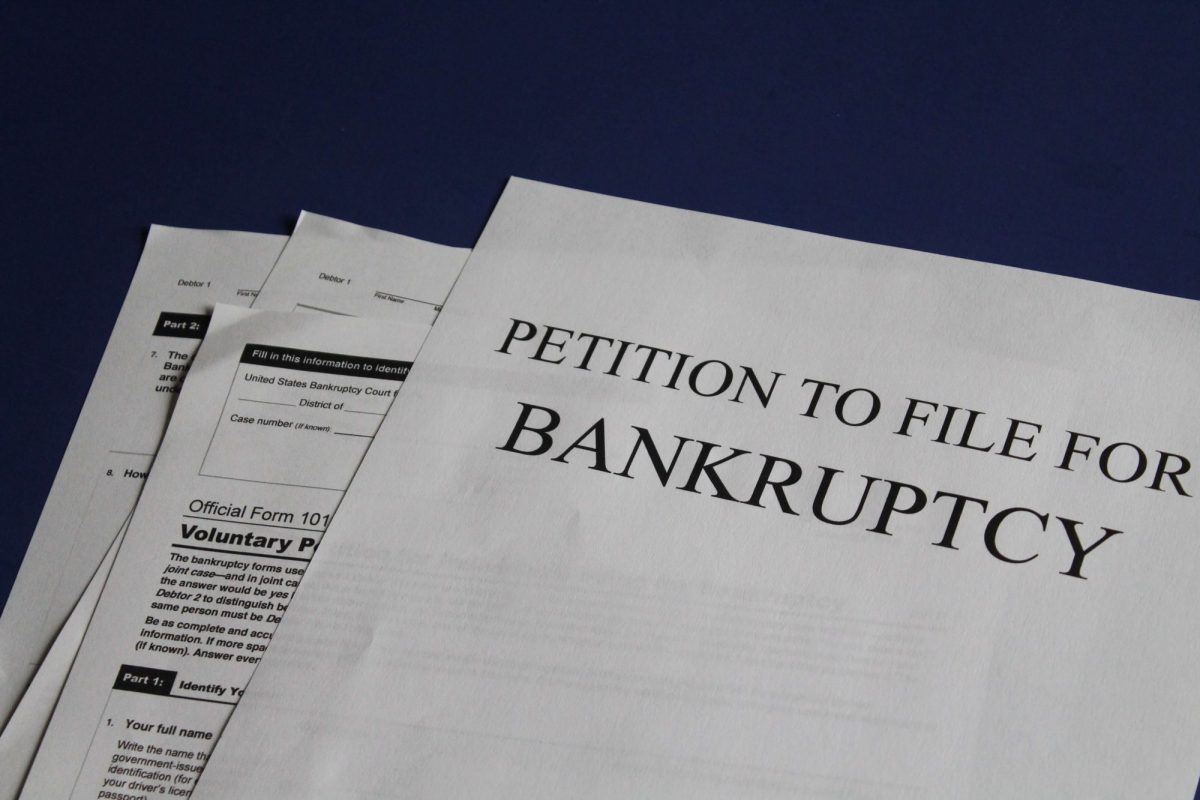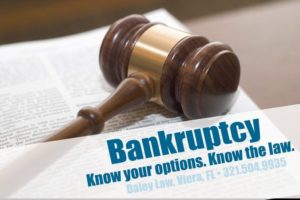
The Bankruptcy Process: Chapter 7 & Chapter 1
Petitioning for bankruptcy can be a difficult process. It is well advised to use the assistance of an experienced bankruptcy attorney. The following details information needed to file Bankruptcy as well as information about the Bankruptcy process.
Types of Bankruptcy
Before discussing the bankruptcy process, it is important to understand the general concepts of Chapter 7 and Chapter 13. The Law Office of Brent M. Myer, PLLC can help you determine what type of bankruptcy is right for you. You will first need to consider your ability to pay your debts, and whether you have assets subject to liquidation.
Chapter 7
Chapter 7 bankruptcy will generally discharge all of your unsecured debts (with some exceptions such as student loans, child support, and some tax debts). However, your non-exempt property may be liquidated by the Trustee to pay your debts. An experienced bankruptcy attorney can advise you what property is exempt and what property is subject to liquidation in a Chapter 7 case.
You, the debtor, will also have to pass the means test. The means test was added to the Bankruptcy Code by Congress with the intention of forcing more, high–earning individuals to file Chapter 13 instead of Chapter 7 bankruptcy. The means test form can be difficult to complete properly. Again, an experienced bankruptcy attorney can advise you whether you pass the means test so as to be eligible for Chapter 7 relief.
Chapter 13
If you do not pass the means test, you can still file a Chapter 13 bankruptcy case. Chapter 13 allows certain debts to be restructured and allows you to set up a payment plan funded by your disposable income. Your plan payments are made to the Chapter 13 Trustee who then makes disbursements to your creditors according to the plan approved by the Court.
Debtor may retain non-exempt property in a Chapter 13. Such property is not subject to liquidation. However, the unprotected asset will impact how much you must pay to unsecured creditors. Unsecured creditors may be paid in full due to non-exempt property. The amount repaid to unsecured creditors may also be impacted by your income. If you cannot afford to repay unsecured creditors in full, then the Court will require they be paid. Payment plans are a minimum of three years but may not exceed five years.
Marshaling your financial information
Various financial information is needed to complete your Schedules, Statement of Financial Affairs, and Means Test form. Keep in mind that even if your spouse is not filing a joint bankruptcy case, you will need to include his or her income and expense information in your paperwork.
- Assets. You have to list all of your assets in your Bankruptcy Schedules. Assets include anything you own such as stocks, bank accounts, real estate, cars, collectables and art. Your will also need to list items such as clothing, home furnishings and other general possessions, especially those of which hold any value. The Law Office of Brent M. Myer, PLLC recommends that you consult an experienced bankruptcy attorney about what property is exempt and what property would be subject to liquidation in a Chapter 7 case.
- Debts. You also must list all of your debts in your Bankruptcy Schedules. You will need to include the name and address of the creditor, the last four digits of the account number, the consideration received, the date the debt was incurred, and your current balance. Only creditors listed in your bankruptcy schedules will be discharged so it is important you include all of your creditors.
- Income. You will need to disclose any and all money you have received during the previous six months as well as any money you expect to receive in the future, how frequently you receive the money and where the money is originating from. Your income will include your regular working income, any unemployment compensation, income from side jobs, dividends or interest from investments, pensions, and money contributed to the household by your spouse, family members or others.
- Monthly Household Living Expenses. Your monthly household living expenses include your rent or mortgage, homeowner’s insurance, utilities, food, clothing, medical expenses, transportation, vehicle payments, vehicle insurance, child support and alimony. When listing expenses that vary from month to month you will need to calculate an average based on the past year’s monthly statements.
A number of documents must be submitted to the Trustee after your case has been filed but before you meet with the Trustee at the Meeting of Creditors. The Trustee may request copies of the following documents: last two tax returns filed with the IRS, bank statements covering the 90-day period prior to filing your case, proof of auto insurance, copy of vehicle registration, copy of deed for real estate, declaration page for insurance policies, and recent statement for retirement accounts.
Credit Counseling
Credit counseling is not optional for your bankruptcy case. You must receive credit counseling from an agency approved by the US Department of Justice within six months of filing your bankruptcy case. Credit counseling typically only takes forty-five minutes to an hour. You may complete the credit counseling on-line or over the telephone. The typical cost for credit counseling is $25.00. Failure to complete credit counseling prior to filing your case will likely result in the case being dismissed.
The Meeting of Creditors
Once your case has been filed you will receive notice from the Bankruptcy Clerk of your Meeting of Creditors. This notice will list the Judge and Trustee assigned to your case as well as your case number and deadlines for creditors. Ordinarily, the Meeting of Creditors occurs four to five weeks after your case is filed.
You must attend the Meeting of Creditors. The Trustee will place you under oath and ask you questions about your Schedules. Creditors also may appear and ask you questions. However, creditors rarely appear at this hearing. The Judge assigned to your case does not attend the Meeting of Creditors. The Meeting of Creditors often takes five minutes.
The Automatic Stay
The automatic stay prohibits your creditors from attempting to collect on the debts. Creditors cannot call, send correspondence, or file/continue a lawsuit against once the Bankruptcy case has been filed because of the automatic stay. The automatic stay goes into effect immediately upon filing your Bankruptcy case.
When filing a Chapter 13 bankruptcy, your creditors are also prohibited from collecting money from any co-signers. The “codebtor stay,” however, is not available in a Chapter 7 bankruptcy.
Post-Filing Debtor Education Course
After your case has been filed you must complete a second course with an approved credit counseling agency. This second course is a Debtor Education course. You must complete this second course in order to be granted a Discharge of your debts.
Typically, the Debtor Education course takes 45 minutes to an hour. Again, a fee is charged for the course which often amounts to $25.00.
Discharge Order
The Discharge Order makes the automatic stay permanent as to most debts. Meaning creditors cannot collect on the debts after the Discharge Order is entered by the Court. The Discharge Order is the reason to file a bankruptcy case.
The Discharge Order is entered approximately three months after a Chapter 7 Bankruptcy case is filed. The Discharge Order is entered in a Chapter 13 Bankruptcy case after all of the plan payments have been completed.
If you are either ready to begin debt settlement or would like to set up a consultation with the Law Office of Brent M. Myer, PLLC, call (772) 873-7794 to schedule your consultation today.



